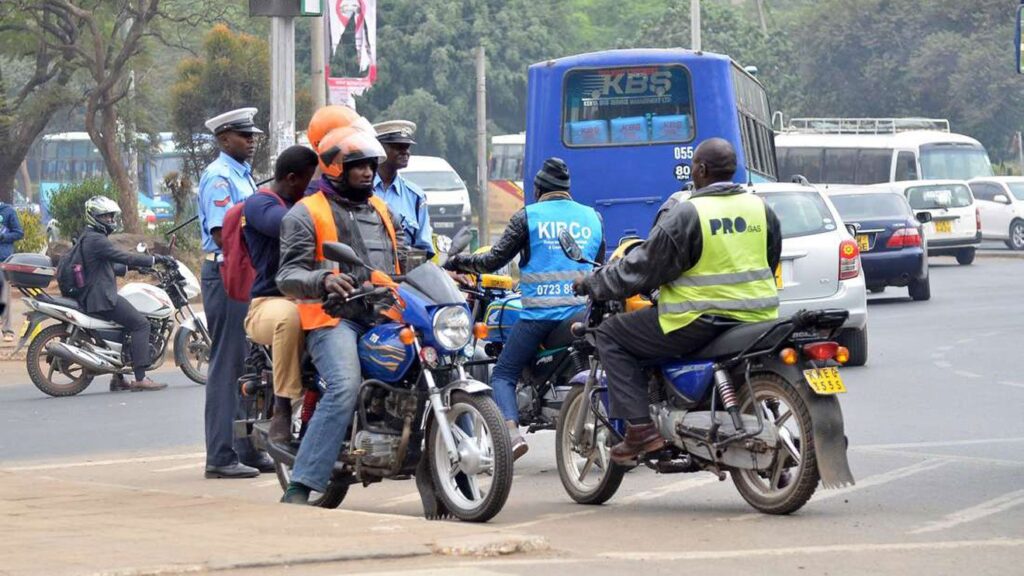Imagine a young boda boda rider named Wafula, stopped by the police on a bustling Nairobi street. His motorcycle lacks proper registration because the National Transport and Safety Authority (NTSA) hasn’t issued number plates. Wafula, desperate and frustrated, is forced to pay a bribe to avoid losing his livelihood. This scene repeats daily across Kenya, undermining public trust and security.
As Chairperson of the Motorcycle Assemblers Association of Kenya, I recently convened an urgent meeting. The assemblers voiced their anger and despair at the persistent inefficiencies within NTSA. The frustrations were so intense that we nearly marched to NTSA offices to demand action after numerous unmet promises.
Established to ensure road safety, manage vehicle registration, and uphold public safety, NTSA’s role is crucial. Motorcycles are integral to Kenya’s transport infrastructure, providing affordable mobility and sustaining livelihoods for millions. Yet, NTSA’s ongoing inefficiency in issuing number plates and registration documents directly contradicts its mandate.
Approximately 10,000 motorcycles operate without proper registration plates, specifically those ranging from KMGQ/R to KMGR/A. The problem runs deeper: logbooks are indefinitely stuck in the Transport Integrated Management System (TIMS VRL), restricted access to system support frustrates dealers and riders, and delays in dispatching critical documentation have become the norm.
These issues are not mere bureaucratic inconveniences; they pose severe risks to national security. Unregistered motorcycles involved in robberies, violent crimes, and even murders remain virtually untraceable. This alarming reality fosters an environment that is ripe for crime and lawlessness. Additionally, unregistered motorcycles hinder crucial accident investigations and emergency responses. Imagine the distress of accident victims and their families who are unable to claim justice or insurance support because the vehicles involved are undocumented, deepening the trauma and chaos.
Moreover, systemic corruption thrives under these conditions. Riders without proper registration become easy prey for corrupt officials, perpetuating bribery and eroding public trust in law enforcement. This systemic issue impacts not only individual riders but also broader societal trust in government processes.
Financial institutions also suffer significantly from NTSA’s inefficiencies. They encounter obstacles in processing loans and securing collateral due to incomplete documentation. Insurance companies struggle with uncertainty and increased risk, leading to economic stagnation within the vibrant boda boda industry.
Our recent meeting highlighted painful stories of financial and emotional tolls. Assemblers recounted cases where entrepreneurs invested their life savings into motorcycles, only to face relentless bureaucratic barriers. Recent data from the Boda Boda sector report confirms this stark reality, underscoring substantial economic contributions that are threatened by administrative delays and inefficiencies.
Alarmingly, NTSA has started attributing its failures to insufficient support from other institutions, particularly the National Security and Intelligence Service (NSIS). As stakeholders, we deeply respect NSIS for its crucial role in safeguarding national security. Such esteemed institutions should never be publicly involved in administrative blame-shifting. NTSA must practice internal accountability and clearly define roles to effectively resolve these inefficiencies.
The consequences of NTSA’s laxity are profound and far-reaching. It’s essential to remember that behind each motorcycle registration is a Kenyan entrepreneur whose livelihood depends on timely, efficient public service. Every inefficiency translates directly into lost income, increased security risks, and diminished trust in government institutions.
We call upon government leaders and policymakers to urgently address these crippling inefficiencies within NTSA. Furthermore, this crisis must prompt a comprehensive review of all essential public institutions to identify similar inefficiencies and reinforce accountability mechanisms.
Efficiency at NTSA is not merely about fulfilling administrative duties; it is fundamentally about safeguarding our nation’s security, supporting economic growth, and nurturing public trust. Every delay and unresolved issue weakens the fabric of our society and economy.
Efficiency is not just a standard; it is our solemn duty. Every delay weakens trust, empowers crime, and undermines livelihoods. Moreover, the increasing road accidents indicate numerous underlying issues. For safer roads and a secure Kenya tomorrow, let us choose diligence today. Think green, act green!



